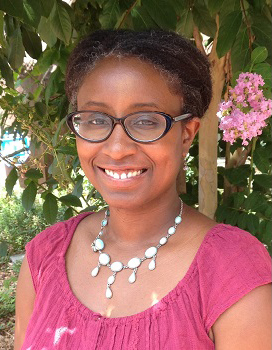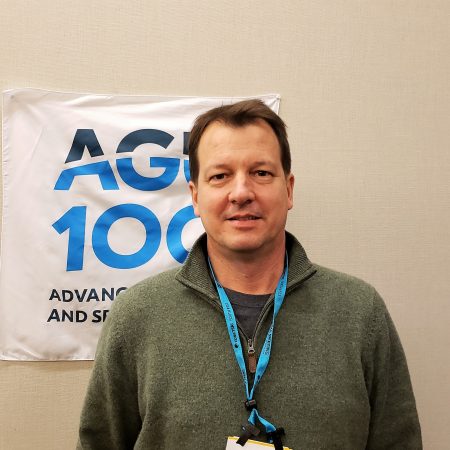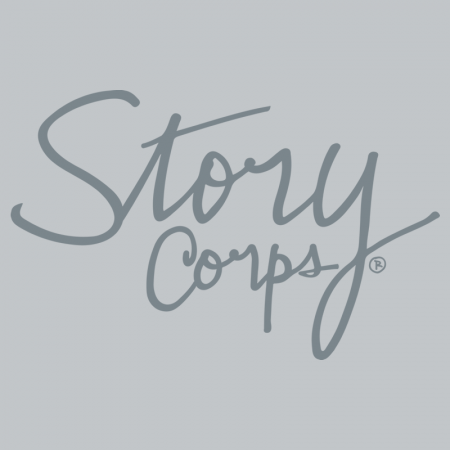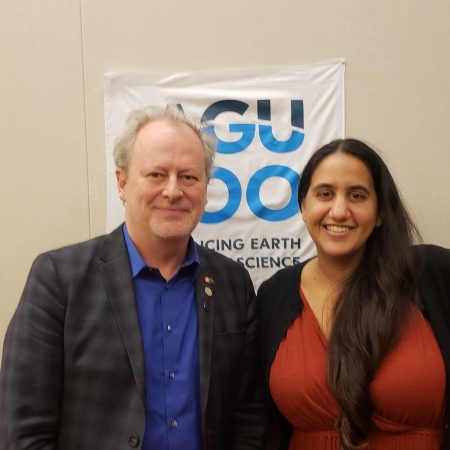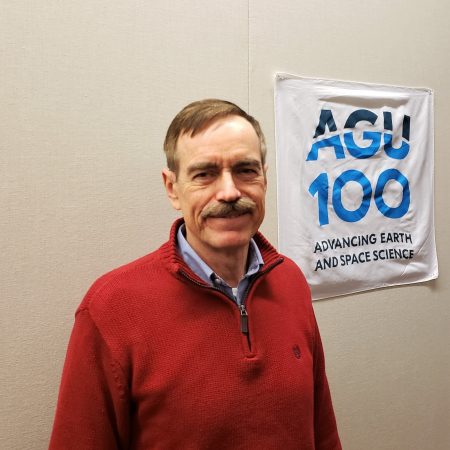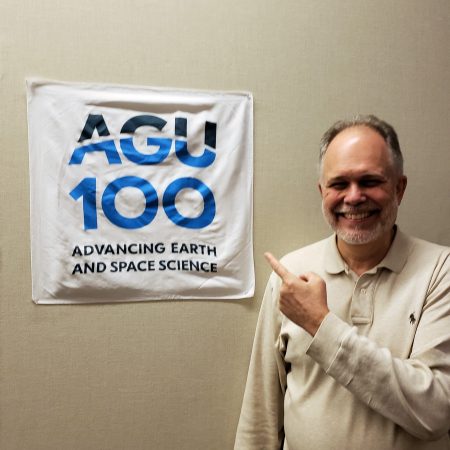Refine
Date Range Clear
Recorded by Clear
Keywords Clear
Partnerships Clear
- Voices of Freedom 7
- VPR 2
- Community Voices of Lake Geneva 1
- Providence 1
- Providence Institute for Human Caring 1
- StoryCorps at Rikers 1
Organizations Clear
- American Geophysical Union 36
- National Aeronautics and Space Administration 6
- American Geopysical Union 3
- Columbia University 3
- Air Force 2
- 180 more
Places Clear
Languages Clear
Initiatives Clear
My grandmother, age 72, was born and raised in Washington DC before moving down to South Carolina. Her father died of cancer at a young age for her, which she speaks of in this interview. She has had a very...
How can scientists tell the story of science so that the public listens and understands? Dwayne Brown is the Senior Communication Officer for the Science Directorate at NASA and works with hundreds of scientists to communicate their ideas on television,...
Elizabeth Rampe, a mineralogist, studying Mars at the NASA Johnson Space Center, shares about her life and work. She focuses on minerals on the surface of Mars which formed from water-rock interactions, which have the potential to show billions of...
Mary Hudson and Bill Lotko are both professors at Dartmouth University and researchers at the National Center for Atmospheric Research. Both study space physics, with Mary focusing on Van Allen radiation belts, and Bill looking at interactions between the magnetosphere...
Kiya Riverman ended up studying glaciers because, on a field work trip, she was one of the few who could fit the ice cave in the glacier. She recalls, “you're surrounded by glaciers and then sometimes you're underneath glaciers. And...
Linda Geiser and Peter Nelson tell their own stories and reflect on the impact they’ve had on each other lives. They’re both currently with the US Forest Service but first met when Linda hired Peter after he finished university to...
My grandpa and I talked about his life and memories. He also explained some advice he’s obtained and wanted to share with future generations.
Bärbel Hönisch, Associate Professor of Environmental Sciences at Columbia University also known as Queen of Boron, transported us millions of years beyond the ice cores to the realm when Greenland had no ice. She took hold of a magical instrument...
Shelby Hurst grew up in northern Michigan where she spent plenty of time poking at and asking questions about the rocks in her grandparents’ backyard, which eventually led her to a PhD in geochemistry. She discusses the importance of women...
Recorded on Saturday, June 24, 2017. Visual artist, Beau McCall and Laura Greer discuss immigration, growing up in Boston, racism, desegregation school busing programs, socially conscious black music, childhood memories of ice-skating, and more. About "The Conversation" Who gets to...
He talks about his family, childhood, and values. He also mentions how his life has been and how he hopes the future will be better.
Erika Land and Aissatou Sidime-Blanton discuss that PTSD the Erika suffered as part of her U.S. military service as a pharmacy technician and how poetry, and producing her one-woman play (“PTSD and Me/At ease. Not today PTSD.”), has helped her...
Amber Soja’s career is on fire. The resident at NASA’s Langley Research Center studies fire regimes and how they are being affected by climate change. “Every fire season is worse,” she says, adding that the changing fire regime is proof...
Interview with dad about growing up, religion, and his favorite memories of me and our family.
Michele Koppes and Heidi Roop met “on an incredible landscape on the edge of the Greenland ice sheet about two years ago.” The conversation that followed made both of them think more closely about the value of science communication and...
For the last 14 years, Gari Mayberry has put her volcanology background to work as a disaster response coordinator at USAID. Disasters come in many shapes and sizes so that specialty is a start, but often Gari finds herself connecting...
Environmental chemist Marc Kramer, Washington State University, has spent an inordinate amount of time talking and climate and weather in the rural parts of your nation. As he says in this interview, “there isn’t a single farmer who isn't interested...
In the mid-2000s, a small group of leaders at AGU, including Peter Fox, Rensselaer Polytechnic Institute, saw an opportunity to shape or reshape how geoscientists work together under a new cross-cutting discipline. As a result, “Earth and space Science Informatics”...
George Huffman calls himself a classic weather person, in part because by the fourth grade in North Central Ohio, he already was excited about the prospect that you could make a job studying weather. At the NASA Goddard Space Flight...
Glenn Orton, a senior research scientist at the Jet Propulsion Laboratory, discusses his career exploring the outer Solar System that started with the Pioneer 10 and 11 missions, and extended forward to Cassini and more recently Juno. Interested in space...
Hal Maring once risked his life for a box of fog. The physical scientist at NASA Headquarters was once on a New Zealand research cruise in the Tasman Sea when the vessel hit bad weather. They took down some of...
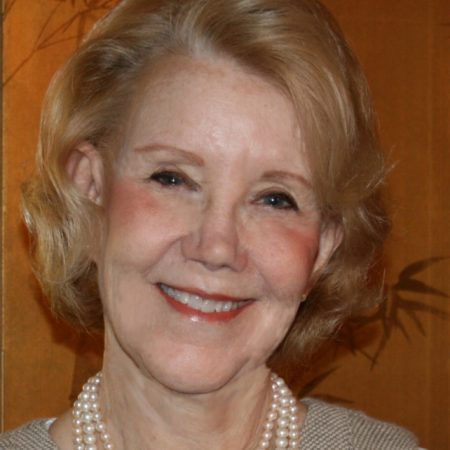
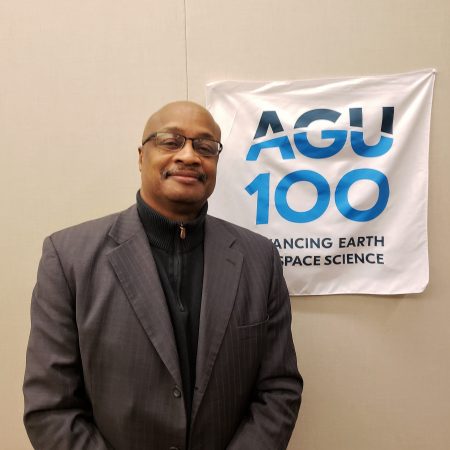

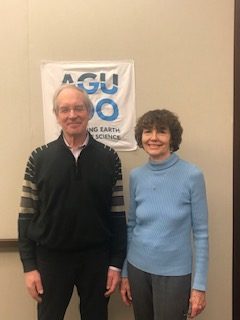
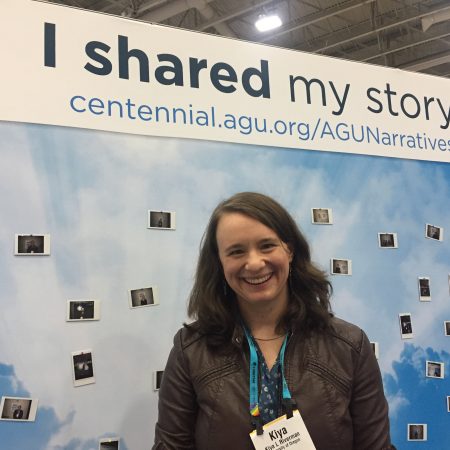
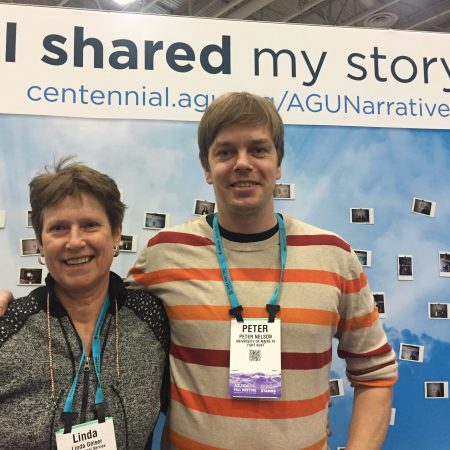
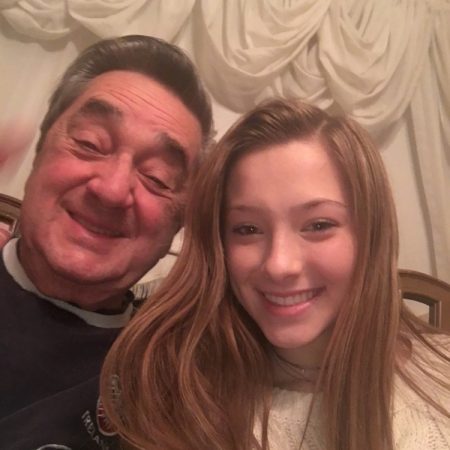
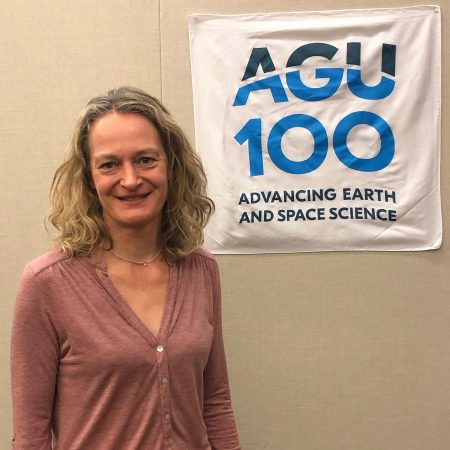
![“I enjoy knowing that a lot of people do care about [the climate] and they care to learn about it.” an interview with Shelby Hurst](https://archive.storycorps.org/uploads/2019/07/Shelby-Hurst-crop-450x450.png)
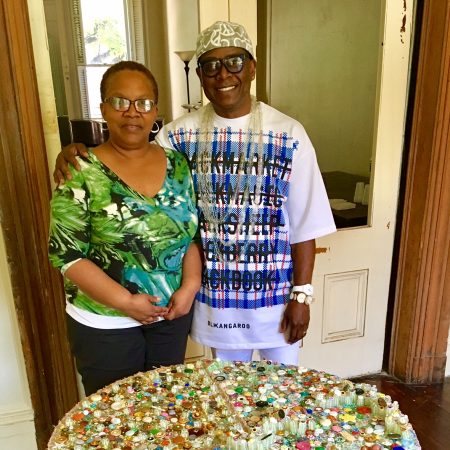
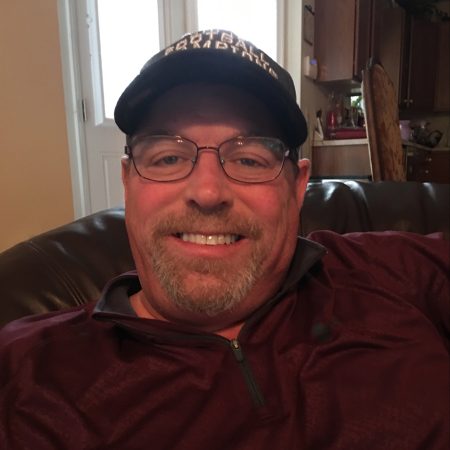
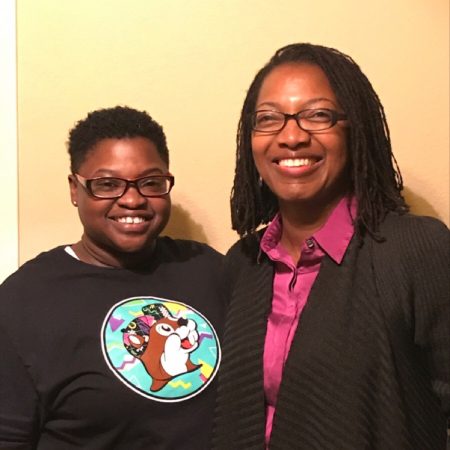

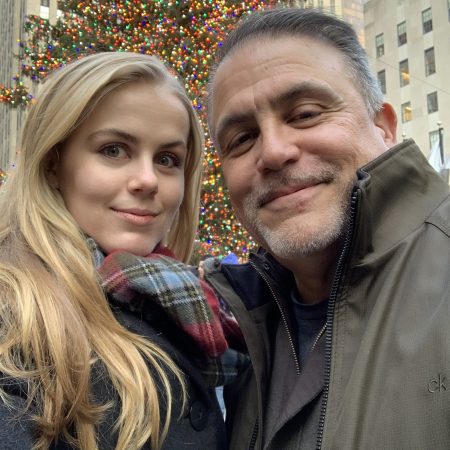
![“How is it that we collect stories [and] create spaces for those stories to be told?” An interview with Michele Koppes and Heidi Roop](https://archive.storycorps.org/uploads/2019/07/181212_Koppes-and-Roop_Booth-450x450.jpg)
